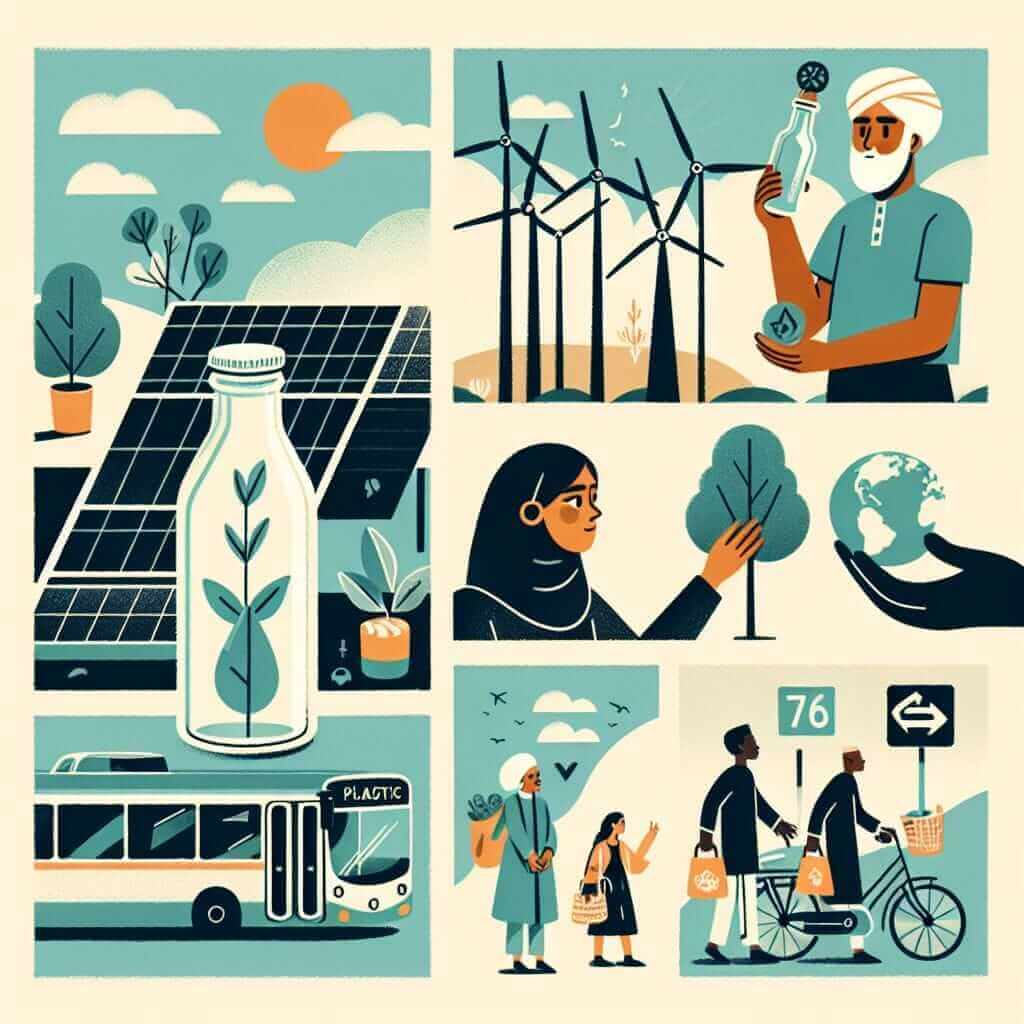As an experienced IELTS instructor and speaking examiner, I often encounter students grappling with environmentally themed questions. One such question that frequently arises is, “What can we do to reduce our impact on the environment?”. This question can appear daunting, but with a strategic approach, you can deliver a compelling and high-scoring response.
Understanding the Question’s Scope
Before diving into solutions, it’s crucial to recognize that the IELTS examiner is assessing your ability to:
- Comprehend the question: Demonstrate you understand the environmental impact being discussed.
- Articulate your thoughts: Express your ideas clearly and coherently using a range of vocabulary.
- Structure your response: Organize your thoughts logically with a clear introduction, supporting points, and conclusion.
- Provide relevant examples: Illustrate your points with concrete examples to add depth and authenticity.
Effective Strategies for Answering
Here’s a breakdown of how to structure a high-scoring response:
1. Introductory Statement: Acknowledge the Issue
Begin by acknowledging the gravity of the situation. This demonstrates your understanding and sets the tone for your response.
Example: “The impact of human activity on our planet is undeniable, and it’s crucial we take action to mitigate further damage.”
2. Present a Range of Solutions
Offer a variety of solutions, ensuring they are relevant and realistic. Categorizing your ideas can add structure and clarity:
- Individual Actions:
- Example: “On a personal level, we can adopt more sustainable practices like reducing our reliance on single-use plastics, opting for energy-efficient appliances, and choosing to walk, cycle, or use public transportation whenever possible.”
- Community Initiatives:
- Example: “Communities can implement recycling programs, promote local farmers’ markets to decrease transportation emissions related to food, and organize awareness campaigns to educate residents about eco-friendly practices.”
- Government Policies:
- Example: “Governments play a pivotal role in enacting stricter environmental regulations for industries, investing in renewable energy sources like solar and wind power, and promoting sustainable urban planning to reduce pollution and congestion.”
3. Provide Specific Examples
Illustrate your points with tangible examples. This demonstrates a deeper understanding and makes your response more engaging.
Example: “For instance, many cities are implementing congestion charges to discourage unnecessary car use, which directly addresses the issue of air pollution. This approach has been successful in London, where it led to a significant reduction in traffic and improved air quality.”
<
4. Conclude with a Thoughtful Remark
End your response by summarizing the importance of collective action and expressing optimism.
Example: “Ultimately, tackling environmental issues requires a multi-faceted approach involving individual efforts, community engagement, and government policies. While the challenges are significant, I believe that through collaborative action, we can create a more sustainable future.”
Key Tips for Success:
- Vocabulary is Key: Employ a wide range of vocabulary related to the environment. Think about terms like “sustainable,” “renewable,” “conservation,” “carbon footprint,” and “biodiversity.”
- Connect Ideas with Linking Words: Use transition words and phrases to ensure a smooth and logical flow of ideas. For example, “Furthermore,” “Moreover,” “In addition to,” “Consequently,” and “Therefore.”
- Practice Makes Perfect: Familiarize yourself with common environmental issues and practice articulating your thoughts on these topics. Mock speaking tests can be invaluable for building confidence.
Remember, the IELTS examiner is evaluating your ability to communicate effectively on a given topic. By demonstrating a clear understanding, providing relevant examples, and utilizing a wide range of vocabulary, you can confidently tackle any environmentally focused question in the IELTS Speaking test.